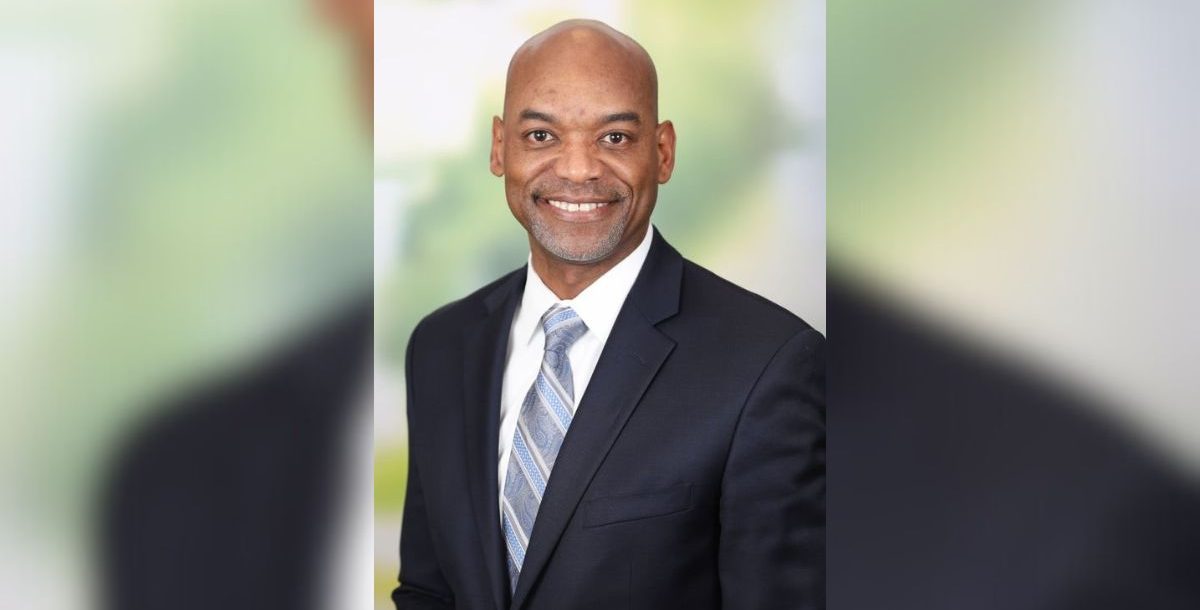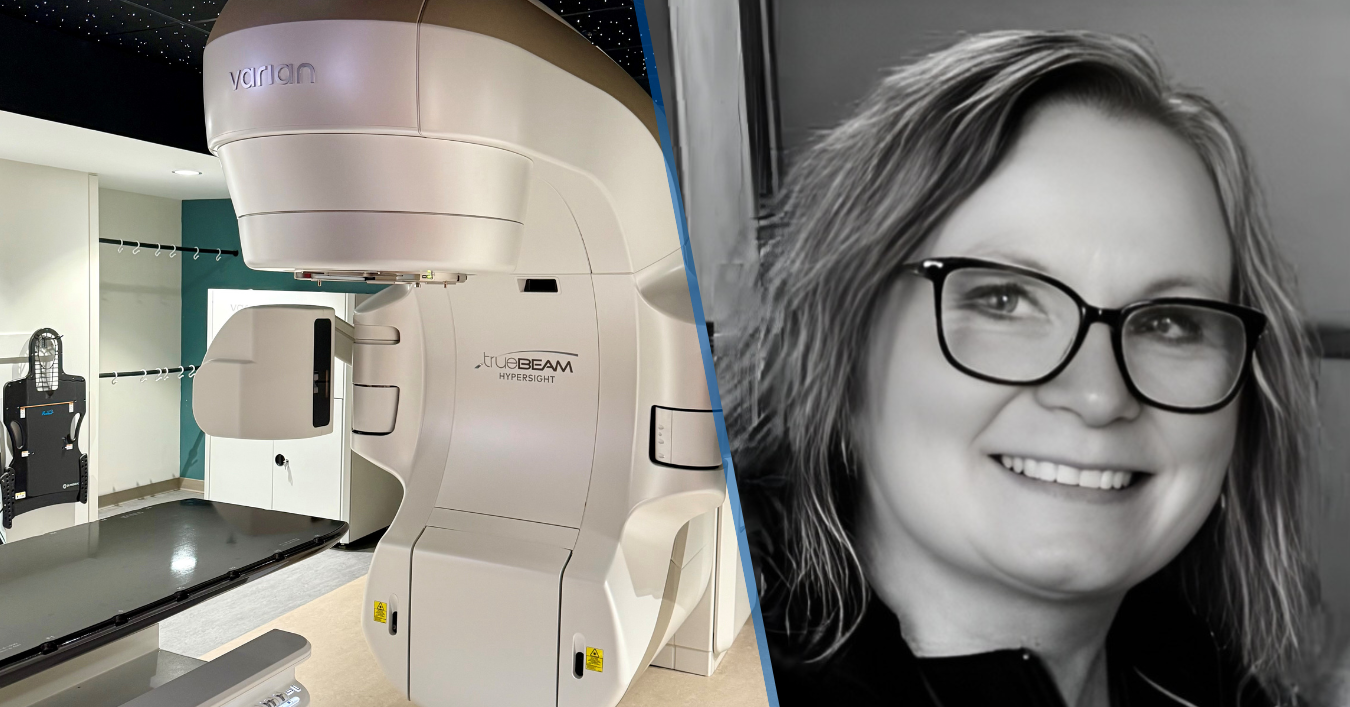We had the opportunity to sit down with Ken James, chief operating officer of our Cincinnati market, to discuss the significant changes he has witnessed in delivering care throughout his career. Read his thoughts below.
Q: What have been the most significant changes you’ve seen in care delivery throughout your career?
A: Throughout my career, I have witnessed several significant changes in care delivery. One of the most notable changes is the increase in consumer demand. Today, consumers are more educated about health care offerings and services than ever. They have access to a wealth of information and know their options.
Another significant change is the rising cost of health care. Unlike other industries, the cost of doing business in the health care industry has exponentially increased without any immediate or intermediate means of offsetting those expenses. This cost increase has pressured health care providers to find innovative ways to deliver care efficiently while controlling expenses.
The COVID-19 pandemic has also profoundly impacted the delivery of care. It has forced health care providers to adapt quickly and implement new measures to ensure the safety of both patients and health care workers. Telemedicine and virtual care have become more prevalent, allowing patients to receive care remotely without needing in-person visits.
Another change I have seen is that the workforce’s expectations, needs and desires have changed over time. Health care professionals now require more flexibility in their work schedules, better work-life balance and opportunities for professional growth. As a result, health care organizations have had to adjust their practices and policies to attract and retain skilled professionals.
In summary, care delivery has undergone significant changes over the years. Consumer demand has increased, the cost of doing business has risen, the COVID-19 pandemic has necessitated new approaches to care delivery and the workforce’s expectations have evolved. These changes have shaped how health care is delivered and will continue influencing the industry’s future.
Q: Aside from the COVID-19 pandemic, what have been the biggest challenges you’ve had to navigate as a leader?
A: Apart from the challenges posed by the pandemic, one of the biggest challenges I have faced as a leader in the health care industry is finding and retaining the right people for my team. Operating in the health care space comes with high costs, and the rising cost of living for professionals adds to the complexity.
One of the main challenges is striking a balance between investing in internal operations to ensure optimal service delivery and allocating funds toward competitive salaries to attract and retain talented individuals. Health care organizations must invest in state-of-the-art technology, equipment and training to provide high-quality care. However, these investments compete with the need to offer competitive salaries to high-demand health care professionals.
The high cost of operating in the health care sector often leads to budget constraints, making allocating sufficient resources to internal operations and talent acquisition challenging. Leaders must carefully manage financial resources and strategically prioritize investments to improve service delivery and attract top talent.
Also, the health care industry is known for its complex regulatory environment. Compliance with ever-changing regulations and requirements can be a significant challenge for leaders. Staying current with regulatory changes, implementing necessary adjustments and ensuring that all operations remain compliant requires constant vigilance and a dedicated team.
The health care industry is also experiencing a shortage of skilled professionals in certain areas. This talent scarcity further intensifies the competition among health care organizations to attract and retain qualified individuals. Leaders must develop creative recruitment strategies, offer competitive compensation packages and provide opportunities for professional growth and development to entice talented individuals to join and stay with their organization.
Q: How would you describe your leadership style?
A: I would consider myself a collaborative servant leader. I believe in actively engaging with my team members and working alongside them to achieve our goals. I don’t just delegate tasks but also involve myself in the work. By doing so, I contribute to the team’s efforts and gain a deeper understanding of the challenges and dynamics.
As a servant leader, I prioritize the needs and growth of my team members. I strive to create an environment where individuals feel supported, empowered and motivated to excel. I believe leadership is not about exerting control or authority but rather about serving the team and helping them reach their full potential. I actively listen to their ideas, concerns and feedback and consider them when making decisions.
Collaboration is a crucial aspect of my leadership style. I value the diverse perspectives and expertise that each team member brings to the table. I encourage open communication, foster a culture of trust and respect and promote teamwork. I believe that by working together, we can achieve better results and overcome challenges more effectively.
I also consider myself a transformational leader. I aim to inspire and motivate my team by setting a compelling vision and demonstrating enthusiasm and passion for our work. I encourage creativity, innovation and continuous learning. I believe in challenging the status quo and seeking opportunities for growth and improvement. I strive to create a positive and energizing work environment where team members feel valued and encouraged to explore new ideas and approaches.
Q: What’s the best career advice you’ve received?
A: The best career advice I have received is to remain humble and remember those who have paved the road before me. This advice has had a profound impact on my career journey. It has taught me the importance of acknowledging and appreciating the contributions of others and recognizing that my success is not solely attributed to my efforts.
By remaining humble, I embrace a mindset of gratitude and humility. I understand that I stand on the shoulders of those who came before me and that their guidance, support and mentorship have significantly shaped my career. This perspective reminds me to show respect and gratitude towards those who have paved the way and to recognize their contributions.
This advice has highlighted the power of small acts of kindness and moments of mentorship. Throughout my career, I have experienced the positive impact that even the most minor acts of kindness and guidance can have on my confidence, stamina, job satisfaction and overall performance. Whether it’s a word of encouragement, a helpful suggestion or a mentorship opportunity, these gestures have shaped my professional growth and development.
Because of this advice, I make it a point to pay it forward. I strive to be a source of support and guidance for others in their professional journeys. I believe in the power of mentorship and its impact on someone’s career trajectory. By offering others my knowledge, experience and support, I hope to contribute to their confidence, growth and success.
Q: What’s your next primary goal for yourself and your team?
A: The next primary goal that I have set is capacity building. I am focused on developing new leaders who can continue the work well into the future. I aim to empower team members to pursue their desired roles personally and professionally.
Capacity building is an essential aspect of team development. It involves enhancing team members’ skills, knowledge and abilities to effectively contribute to the organization’s goals. By investing in capacity building, we can ensure that our team is equipped with the necessary resources and expertise to tackle challenges and drive innovation in the ever-changing health care landscape.
In addition to developing new leaders, I am also focused on fostering a culture of innovation within our team. Innovation is crucial in driving positive change and staying ahead in the health care industry. We encourage team members to think outside the box, challenge traditional practices and explore new ways to improve patient care and operational efficiency.
I am committed to fostering collaboration and interdisciplinary teamwork within our organization. Health care is complex and interconnected; cooperation among disciplines is essential for providing comprehensive, patient-centered care. By breaking down silos and promoting cross-functional collaboration, we can leverage the expertise of various health care professionals to deliver the best possible outcomes for our patients.
Q: Is there anything else you would like to share or any advice you would give to aspiring health care leaders?
A: One piece of advice I would give to aspiring health care leaders is never to stop learning and seeking new knowledge. The health care industry constantly evolves and staying current with the latest trends, research and best practices is essential.
Continuing education and professional development are crucial for staying ahead in the field and providing the best possible care for patients. Take advantage of opportunities to attend conferences, workshops and seminars and stay connected with professional networks and associations. Engage in lifelong learning and seek out mentors who can guide and inspire you on your leadership journey.
I would encourage aspiring health care leaders to cultivate strong relationships and networks. Building relationships with colleagues, mentors and industry leaders can provide valuable support, guidance and opportunities for collaboration. Surround yourself with a diverse network of professionals who can offer different perspectives and insights.
Lastly, I would advise aspiring leaders to embrace challenges and view them as opportunities for growth. The health care industry is complex and ever-changing, and challenges are inevitable. Approach challenges with a positive mindset and a willingness to learn and adapt. Use setbacks as learning experiences and opportunities to improve and innovate.
Learn about the health care services we provide at Mercy Health.





